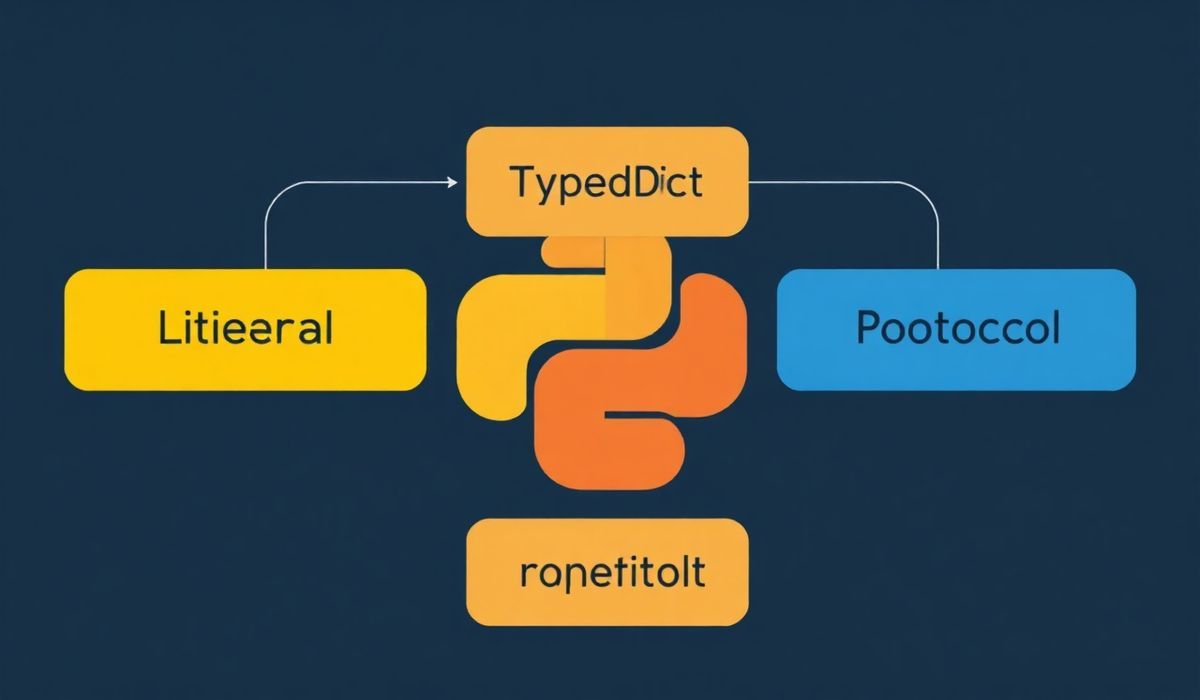Introduction to Typing-Extensions
The typing-extensions module is an essential package for Python developers who want to leverage advanced type-hinting capabilities. It complements the built-in typing module by providing features that have been proposed or introduced in more recent versions of Python, ensuring backward compatibility.
Key Features of Typing-Extensions
Below, we introduce a variety of APIs offered by the typing-extensions module. Each API supports developers in writing more robust, maintainable, and type-safe code.
1. Literal
The Literal type hint allows specifying specific values a variable can take, instead of just its type.
from typing_extensions import Literal
def process_color(color: Literal['red', 'green', 'blue']) -> str:
return f"Selected color: {color}"
print(process_color('red')) # Valid
# print(process_color('yellow')) # Type checker error
2. TypedDict
TypedDict enables defining dictionaries with a specific structure.
from typing_extensions import TypedDict
class User(TypedDict):
name: str
age: int
user: User = {"name": "Alice", "age": 30}
# Missing or extra keys will raise type checker errors
3. Protocol
The Protocol feature allows structural subtyping, enabling you to define base classes with specific method and attribute contracts.
from typing_extensions import Protocol
class Greeter(Protocol):
def greet(self) -> str:
...
class Person:
def greet(self) -> str:
return "Hello!"
class Robot:
def perform_task(self):
return "Task done!"
def say_hello(entity: Greeter) -> str:
return entity.greet()
print(say_hello(Person())) # Valid
# print(say_hello(Robot())) # Type checker error
4. Final
The Final type indicates that a variable or method should not be overridden or reassigned.
from typing_extensions import Final MAX_USERS: Final = 100 # MAX_USERS = 200 # Type checker error
5. @runtime_checkable
Annotations with @runtime_checkable allow runtime verification for type compatibility.
from typing_extensions import Protocol, runtime_checkable
@runtime_checkable
class Runner(Protocol):
def run(self) -> None:
...
class Athlete:
def run(self) -> None:
print("Running fast!")
print(isinstance(Athlete(), Runner)) # True
6. Self
Self is useful when defining methods that return the instance of their class.
from typing_extensions import Self
class FluentInterface:
def set_name(self, name: str) -> Self:
self.name = name
return self
def set_age(self, age: int) -> Self:
self.age = age
return self
fi = FluentInterface().set_name("Alice").set_age(30)
Use Case Example
Here’s a complete example demonstrating the use of multiple typing-extensions APIs in a single application.
from typing_extensions import Literal, TypedDict, Final, Protocol, runtime_checkable
class User(TypedDict):
name: str
age: int
MAX_AGE: Final = 100
@runtime_checkable
class Validator(Protocol):
def validate(self, user: User) -> bool:
...
class AgeValidator:
def validate(self, user: User) -> bool:
return user["age"] < MAX_AGE
def process_user(user: User, validator: Validator) -> Literal["valid", "invalid"]:
return "valid" if validator.validate(user) else "invalid"
user_data: User = {"name": "Alice", "age": 25}
validator = AgeValidator()
print(process_user(user_data, validator)) # Output: valid
Conclusion
The typing-extensions module is a powerful tool to extend typing capabilities in Python, ensuring better type safety and clean, maintainable code. With its array of features like Literal, TypedDict, Protocol, Final, and more, developers can unlock the potential of strict typing in their applications.




